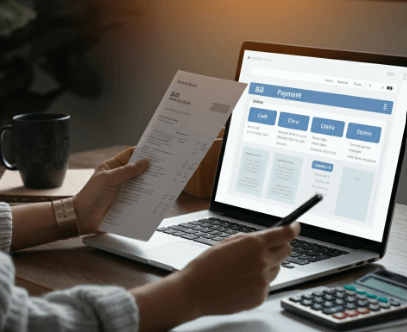What is mortgage assumption in real estate? Mortgage assumption in real estate is the process by which a buyer takes over the seller’s existing mortgage, allowing them to benefit from the original loan terms and potentially secure a lower interest rate. Buying or selling property? Understanding mortgage assumption in real estate could save you time, money, and stress. Whether you’re a land seller, property seller, real estate investor, house buyer, or land buyer, knowing how mortgage assumption works can significantly impact your financial outcomes. This guide will break down the essentials, giving practical tips and insights to help you make correct decisions.
Steve Daria and Joleigh, seasoned real estate investors, have leveraged mortgage assumptions in their investment strategies to acquire properties with favorable terms. By assuming existing mortgages, they have minimized upfront costs and offered sellers a smooth transition. This approach benefits their portfolio and helps create win-win situations in the property market.
What is Mortgage Assumption?
Mortgage assumption in real estate involves a buyer taking over the seller’s existing mortgage, effectively assuming responsibility for the remaining loan balance, interest rate, and terms of the original loan.
This means that the buyer steps into the seller’s position with respect to the mortgage, continuing payments under the same conditions set forth in the original loan agreement.

This process can be advantageous for buyers, especially if the current mortgage has a lower interest rate than current market rates, allowing them to benefit from more favorable loan terms.
For sellers, it can streamline the transaction by making their property more attractive to possible buyers who may prefer this arrangement.
Why Does Mortgage Assumption Matter?
Mortgage assumption can offer significant benefits:
- For Buyers: Lower interest rates and reduced closing costs.
- For Sellers: A faster sale process and the potential to attract more buyers.
How Mortgage Assumption Works
Understanding how a mortgage assumption in real estate works can demystify the process and make it easier to navigate.
Step-by-Step Process
- Check Loan Assumability: Not all mortgages are assumable. Typically, FHA, VA, and USDA loans allow assumption. Verify the terms with the lender.
- Qualify the Buyer: The buyer must meet the lender’s requirements, similar to applying for a new loan.
- Submit Application: Both parties complete the necessary paperwork and submit it to the lender.
- Approval and Transfer: Upon approval, the lender transfers the mortgage to the buyer.
Benefits for Buyers
Mortgage assumption can be incredibly beneficial for buyers:
- Lower Interest Rates: Buyers can benefit from the seller’s lower interest rate.
- Reduced Closing Costs: Assumption often involves lower fees compared to new mortgages.
- Simplified Process: The process can be quicker and less cumbersome.
Benefits for Sellers
Sellers also stand to gain:
- Faster Sale: Homes with assumable mortgages can sell quicker.
- Attract More Buyers: Competitive interest rates can attract more potential buyers.
- Avoid Penalties: Sellers can avoid prepayment penalties on their mortgage.
Get An Offer Today, Sell In A Matter Of Days…
Key Strategies for Successful Mortgage Assumption
To ensure a smooth mortgage assumption process, consider these strategies:
Thoroughly Vet the Buyer
Ensure the buyer meets all the lender’s requirements.
A thorough vetting process can save time and prevent complications down the line.
- Credit Score: The buyer should have a good credit score.
- Income Verification: Ensure the buyer’s income is sufficient to cover the mortgage.
- Financial Stability: Assess the buyer’s overall financial health.
Communicate Clearly
Effective communication between buyer, seller, and lender is crucial.
Keep all parties informed about the process, requirements, and timelines.
- Transparency: Be transparent about terms and conditions.
- Regular Updates: Provide regular updates to all involved parties.
- Prompt Responses: Respond promptly to queries and requests.
Use Legal Assistance
Make a real estate lawyer take part and guide you through the legal complexities.
An attorney can help draft agreements and ensure compliance with all legal requirements.
- Contract Review: Have contracts reviewed by a legal expert.
- Compliance Check: Ensure all actions comply with relevant laws.
- Dispute Resolution: Facilitate resolution of any disputes that may arise.
Tips for a Smooth Mortgage Assumption Process
To ensure a seamless mortgage assumption experience, follow these tips:
Understand the Loan Terms
Both parties should thoroughly know the terms and conditions of the existing mortgage.
- Interest Rates: Know the interest rate and how it compares to current rates.
- Payment Schedule: Know the payment schedule and any potential changes.
- Remaining Balance: Be aware of the remaining loan balance.
Keep Detailed Records
Keep detailed documents of all communications, agreements, and transactions.
- Document Everything: Keep copies of all documents.
- Track Communications: Log all communications with the lender and other parties.
- Organize Financials: Maintain organized financial records.

Plan for Contingencies
Prepare for possible challenges and have contingency plans in place.
- Backup Plans: Have alternative strategies if the assumption is denied.
- Emergency Funds: Set aside funds for unexpected expenses.
- Legal Advice: Consult with legal experts as needed.
Frequently Asked Questions
Understanding common questions can provide further clarity:
Can All Mortgages Be Assumed?
No, not all mortgages are assumable. Generally, FHA, VA, and USDA loans are designed to be assumable, meaning that buyers can take over these loans under certain conditions.
However, most conventional loans include a “due-on-sale” clause, which prevents the mortgage from being assumed and needs the full loan balance to be paid off when the property is sold.
What Are the Risks Involved?
While mortgage assumption offers benefits, there are risks, including:
- Lender Approval: The lender may not approve the assumption.
- Terms and Conditions: The buyer must accept existing terms, which might not always be favorable.
- Potential Liabilities: Sellers might remain liable if the buyer defaults.
How Long Does the Process Take?
The timeline for a mortgage assumption can vary, but it usually takes between 30-60 days to complete.
Factors influencing the duration include the lender’s specific requirements, the complexity of the transaction, and the thoroughness of the approval process.
Delays may occur if additional documentation is needed or if there are complications in verifying the buyer’s qualifications or the terms of the existing mortgage.
Conclusion
Mortgage assumption in real estate offers a range of benefits for both buyers and sellers. By understanding the process, leveraging effective strategies, and being well-prepared, you can maximize these benefits. Whether you’re looking to buy, sell, or invest, mortgage assumption can be a valuable tool in your real estate arsenal.
**NOTICE: Please note that the content presented in this post is intended solely for informational and educational purposes. It should not be construed as legal or financial advice or relied upon as a replacement for consultation with a qualified attorney or CPA. For specific guidance on legal or financial matters, readers are encouraged to seek professional assistance from an attorney, CPA, or other appropriate professional regarding the subject matter.

